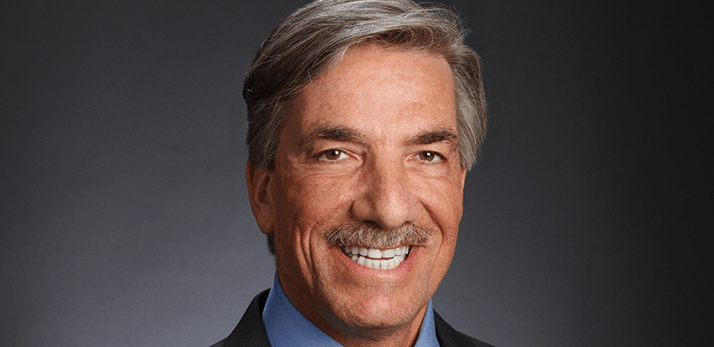
You’ve had a distinguished career with Allergan and AMO, and you’re now Operating Partner with Versant Ventures. Where did it all start? Well, I joined Allergan right out of University after I’d received my Bachelor of Science in Zoology. I wanted to become a physician, but had decided that I’d work for a year doing something appropriate for medical school, so I looked at pharmaceutical companies. I joined Allergan and met my mentor – and Allergan’s founder – Gavin Herbert, who hired me. His philosophy, which I’ve carried throughout my career, is that the most important person in any company is the customer. I started as a sales rep, and called on ophthalmologists, optometrists, and dermatologists. I loved it very much – and I never went to medical school.
So was ‘carrying the bag’ the best education you could have received? Yes. Carrying the bag was one of the most valuable experiences in my 34-year career in this industry. You get to really understand the customer base, and even now, I still spend a good portion of my time talking to customers, as there is no greater value than observing your customer in his or her environment, understanding what they do on a day-to-day basis, and trying to meet or exceed their needs. It also gains you respect; when you address the sales forces of these large companies, they all know that you carried the bag, just like them.
What’s your management style? My style is transparent. I want everyone in the company to know exactly, on a day-to-day basis, where they stand. When somebody is doing something exceptionally well, you tell them right there. It reinforces the positive. If they’re making an error, you tell them right there, so they don’t repeat it. Too many times people wait till the end of the year when they do their performance reviews and by that time it’s too late. You’ve wasted a year of acknowledging their successes and recognizing their deficiencies. I like to have ‘positive conflict’; the ability to have conflict but not make it personal. Too many times, people shy away from challenging discussions, and I find that that’s to the detriment of most companies. They’re not acknowledging what could be an opportunity to make something better by not acknowledging a failure. I encourage people to challenge, recommend how to improve things, but not make it personal.
Finally, I push down accountability – to everyone. My wife says that 99 percent of the people want to do what’s right for themselves and for the company. I agree, you just need to make sure you unleash that by making them responsible for what they do. Acknowledge their successes and work with their deficiencies. I don’t like organization charts, because they signify that somebody is more important than somebody else. The only person that’s important at any company, is the customer because nothing happens until somebody buys something. Last time I checked, that’s how successful companies stay successful.
Why do Versant see ophthalmology as an exciting place for investment? For the same reasons Abbott bought AMO. Ophthalmology is one of the few healthcare areas that affect all three major demographics. First, the elderly: the fastest growing demographic in the world. But we also have presbyopia affecting the baby boomers, and then below them are the Gen-Y/ Gen-Xers, who suffer from issues like dry eye or who want refractive surgery like LASIK. These diseases are global, well understood, and very under-penetrated, and there’s very few other industries like that. If you were to retire tomorrow and be replaced by a Jim Mazzo who is 20 years younger than you, what advice would you give him? Number one: don’t fall in love with any press clippings. Be humble. Over the years of a career, you get a lot of people that will flatter you. The moment you start to fall in love with yourself or think that you’re better than you really are, is the time you make your greatest mistakes. Number two: hire people that are better than you. People make the mistake of trying to hire somebody that they can “control” and I think that is a failure. So I would say, “Jim Mazzo, please hire someone who you would not have a problem reporting to.” Number three: make sure you understand that this is a global business, but that every market has local, cultural differences. Do not take a US or a European approach to launching a product or understanding a customer in a different market. It won’t work. You need to take the time to understand those cultural differences and adjust your approach accordingly. This is the last thing I would tell Jim: get in the field, work with the rep and talk to the customer because there is no better way to learn what that market needs. Not via the internet, not through journals. You can only learn it face-to-face with your customers.
